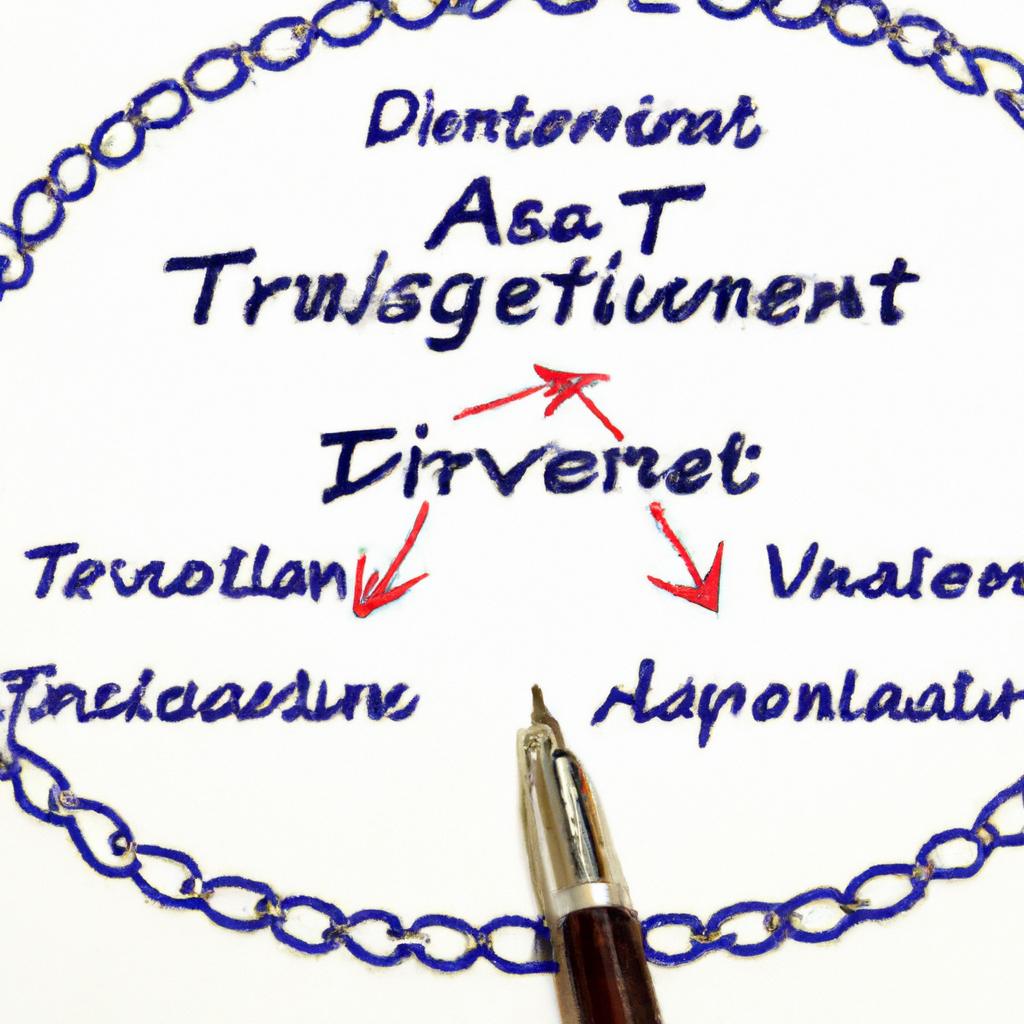In the realm of estate planning, the creation of a trust estate stands as a cornerstone for securing the future of one’s assets and ensuring the well-being of loved ones. As experienced practitioners in the field of trusts, Morgan Legal Group offers insight and guidance in navigating the complexities of establishing and managing trust estates. With a focus on safeguarding and distributing assets in accordance with the wishes of our clients, we stand prepared to provide tailored solutions to meet your unique needs. Join us as we delve into the intricate world of trust estates, exploring the nuances and benefits they offer in the realm of estate planning.
Understanding Trust Estates in Estate Planning
When it comes to estate planning, trust estates play a crucial role in ensuring that assets are managed and distributed according to your wishes. Trust estates offer a level of control and privacy that may not be achievable through a traditional will. By setting up a trust estate, you can protect your assets from creditors, avoid probate, and provide for your loved ones in a more efficient and seamless manner.
There are different types of trust estates to consider, such as revocable trusts, irrevocable trusts, and special needs trusts. Each type of trust has its own set of benefits and considerations. It is important to work with an experienced estate planning attorney to determine which type of trust estate is best suited to your individual needs and goals. By understanding trust estates and how they fit into your overall estate plan, you can ensure that your assets are protected and distributed according to your wishes.

Key Benefits of Establishing Trust Estates
Trust estates offer a range of key benefits that make them a valuable tool in estate planning. One of the main advantages is the ability to avoid probate, which can be a time-consuming and costly process. By establishing a trust estate, individuals can ensure that their assets are distributed according to their wishes without the need for court intervention.
Another benefit of trust estates is privacy. Unlike wills, which become public record upon probate, trust estates allow for a private transfer of assets. This means that the details of the estate plan remain confidential, providing an extra layer of security for the grantor and beneficiaries. Additionally, trust estates can offer tax advantages and flexibility in terms of asset management and distribution, making them a versatile tool for individuals looking to protect their wealth and provide for their loved ones.

Navigating the Complexities of Trust Administration
Trust administration can often be a maze of intricate legal processes and responsibilities that can overwhelm even the most seasoned trustees. It is crucial to have a clear understanding of the complexities involved in managing trust estates to ensure that the wishes of the grantor are carried out effectively and efficiently.
Key considerations in trust administration include:
- Understanding the terms of the trust document
- Complying with legal and tax requirements
- Managing trust assets responsibly
- Communicating effectively with beneficiaries
| Trust Administration Tips | Action |
|---|---|
| Review trust document carefully | Identify trustee powers and duties |
| Maintain accurate records | Document all trust transactions |
| Communicate with beneficiaries | Keep beneficiaries informed of trust administration |

Recommended Strategies for Ensuring Smooth Succession with Trust Estates
When it comes to managing trust estates, it is important to carefully plan and strategize to ensure a smooth succession process. One effective strategy is to clearly outline the wishes and intentions of the trust creator in the trust document. This includes specifying who the beneficiaries are, what assets are included in the trust, and how those assets should be distributed. By providing detailed instructions, conflicts and misunderstandings can be minimized, leading to a smoother transition of wealth.
Another crucial strategy is to regularly review and update the trust document as needed. Life changes, such as marriages, births, divorces, and deaths, can have a significant impact on the distribution of assets within a trust. By staying proactive and making necessary revisions, you can ensure that the trust reflects your current wishes and circumstances. Additionally, appointing a reliable and trustworthy trustee who will act in the best interests of the beneficiaries is essential for the successful administration of the trust estate.
Q&A
Q: What is a trust estate?
A: A trust estate is a legal arrangement in which a person (the settlor) transfers assets to a trustee to hold and manage for the benefit of beneficiaries.
Q: How does a trust estate differ from a will?
A: A trust estate takes effect during the lifetime of the settlor, whereas a will only takes effect upon the death of the testator. Additionally, a trust estate can provide for more flexibility and control over how assets are distributed.
Q: Who can benefit from a trust estate?
A: Beneficiaries of a trust estate can be individuals, charities, or even pets. The settlor can specify exactly who will benefit and under what circumstances.
Q: Are there different types of trust estates?
A: Yes, there are many different types of trust estates, including revocable trusts, irrevocable trusts, charitable trusts, and living trusts. Each type has its own set of rules and requirements.
Q: Can a trust estate help with estate planning?
A: Yes, a trust estate can be a valuable tool in estate planning. It can help avoid probate, minimize estate taxes, and protect assets from creditors.
Q: How important is it to choose the right trustee for a trust estate?
A: Choosing the right trustee is crucial, as they will be responsible for managing the trust assets and carrying out the settlor’s wishes. It is important to select someone who is trustworthy, competent, and knowledgeable about trust law.
Q: Can a trust estate be modified or revoked?
A: Depending on the type of trust estate, it may be possible to modify or revoke the trust. However, this typically requires the consent of all parties involved and may be subject to certain legal restrictions.
Final Thoughts
In conclusion, trust estates offer individuals a unique and secure way to manage their assets and provide for their loved ones in the future. By establishing a trust, individuals can have peace of mind knowing that their wishes will be carried out according to their specific instructions. Trusts can also offer benefits such as tax advantages and privacy, making them a valuable tool for estate planning. Whether you are looking to protect your assets, provide for your heirs, or support a charitable cause, a trust estate may be the perfect solution for you. Consider speaking with a qualified estate planning attorney to explore the possibilities of setting up a trust estate and securing your financial legacy for generations to come.
 Trust Estates: Everything You Need to Know
Trust Estates: Everything You Need to Know
When it comes to estate planning, there are several options available to ensure that your assets are distributed according to your wishes after your passing. One of these options is a trust estate, also known as a living trust or revocable trust. Trust estates have become increasingly popular in recent years, with many people choosing this option as a way to protect their assets and simplify the transfer of their estate to their beneficiaries. In this article, we’ll dive into everything you need to know about trust estates, including their purpose, benefits, and practical tips for creating one.
What is a Trust Estate?
A trust estate is a legally binding document that allows a person (known as the “grantor”) to transfer their assets into a trust during their lifetime. The trust is then managed by a trustee, who holds and distributes the assets to the named beneficiaries according to the instructions outlined in the trust. Trust estates are often used as an alternative to a will, as they can provide more control and flexibility in how assets are passed on to heirs.
Types of Trust Estates
There are two main types of trust estates: revocable and irrevocable.
1. Revocable Trust Estate – As the name suggests, this type of trust can be changed or revoked at any time during the grantor’s lifetime. The grantor retains control of the assets in the trust and can change the beneficiaries or terms of the trust as they see fit.
2. Irrevocable Trust Estate – Once the grantor creates an irrevocable trust, it cannot be changed or revoked. The assets in the trust are no longer considered part of the grantor’s estate and are no longer subject to estate taxes. However, the grantor gives up control of the assets in the trust and cannot make changes, making this type of trust estate more permanent and restrictive.
Benefits of a Trust Estate
There are several benefits to setting up a trust estate as part of your estate planning strategy.
1. Avoids Probate – By placing assets in a trust estate, they are not subject to the lengthy and often costly probate process, which is required when distributing assets through a will. Avoiding probate can save time and money for both the grantor and their beneficiaries, allowing for a smoother transition of assets.
2. Increased Privacy – Unlike wills, trust estates are not public record, providing greater privacy for the grantor and their beneficiaries. This can be especially important for families who wish to keep their financial affairs private.
3. Protects Assets from Creditors – A trust estate can protect assets from potential creditors after the grantor’s passing. This can be particularly helpful for individuals with high-value assets or complex family dynamics.
4. Potential Tax Benefits – As mentioned earlier, irrevocable trust estates can reduce estate taxes as the assets are no longer considered part of the grantor’s estate. In addition, trusts can also provide tax benefits for beneficiaries, such as the ability to receive assets over time instead of all at once, potentially mitigating the impact of taxes.
Creating a Trust Estate
The process of creating a trust estate involves working with an attorney to draft the necessary legal documents. Here are some practical tips to keep in mind when creating a trust estate:
1. Choose a Trustee Wisely – The trustee is responsible for managing the assets in the trust and distributing them to the beneficiaries according to the terms outlined in the trust. It’s important to choose someone who is trustworthy, responsible, and capable of handling these responsibilities.
2. Understand Costs and Fees – Creating a trust estate will involve legal and administrative costs, such as attorney fees and filing fees. It’s essential to understand and factor in these costs when deciding whether a trust estate is right for you.
3. Keep the Trust Funded – In order for a trust estate to be effective, the trust must be funded with assets. This means transferring ownership of assets into the trust, which can involve additional legal and financial steps. It’s crucial to keep the trust funded at all times to ensure its validity.
Real-World Examples
1. The Rockefeller Family – When John D. Rockefeller, Sr. passed away in 1937, he left behind a trust estate that continues to provide for his descendants to this day. His decision to use a trust estate allowed his family to maintain control over their assets while avoiding the potential negative effects of intergenerational wealth.
2. Terry Kath – Following the untimely death of Terry Kath, guitarist for the band Chicago, his wife set up a trust estate in his name to ensure that his family would be taken care of after his passing. This decision allowed for a smoother distribution of his assets and financial stability for his loved ones.
In conclusion, a trust estate can be a valuable tool in any estate planning strategy. By providing benefits such as avoiding probate and protecting assets, trust estates can simplify the transfer of assets to beneficiaries and provide peace of mind for the grantor. As with any legal document, it’s important to carefully consider the options and work with a trusted attorney to create a trust estate that best fits your individual needs.











